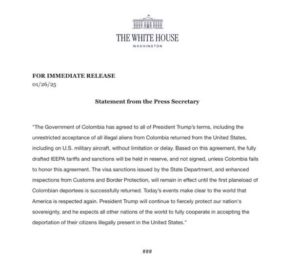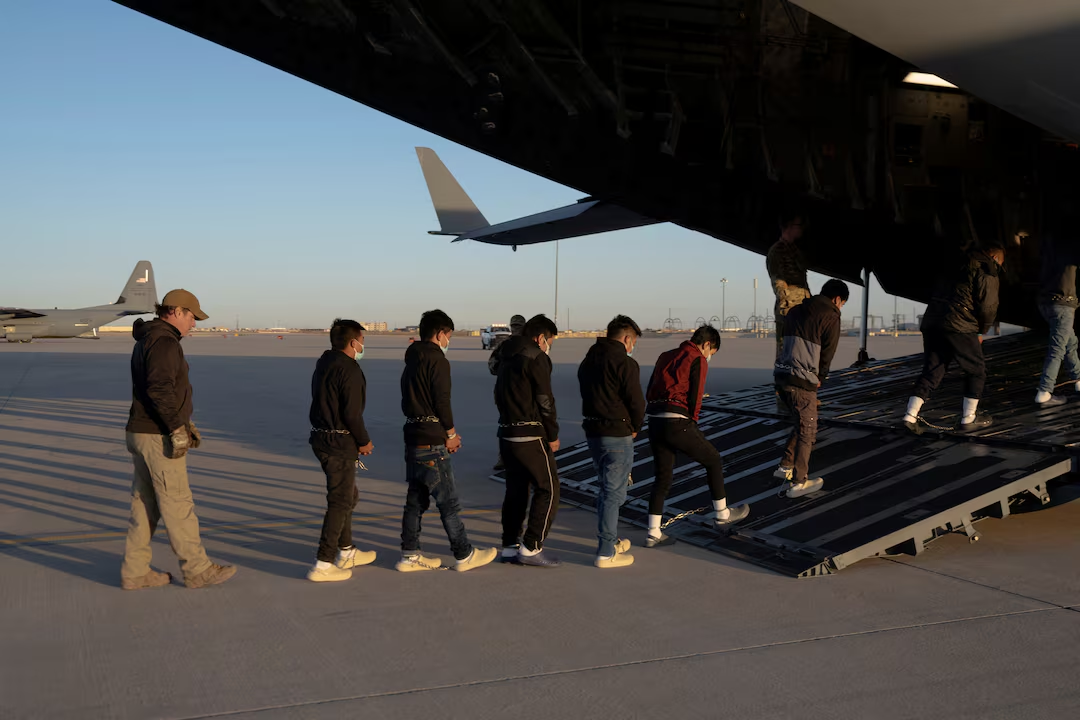adverts
The United States has shelved plans to impose 25% tariffs on Colombian goods following an agreement under which Colombia will accept deported migrants without restrictions, the White House has announced.
The decision comes after a tense standoff between the two nations that began when Colombian President Gustavo Petro blocked two U.S. military deportation flights from landing in the country on Sunday.
In response, former President Donald Trump threatened urgent retaliatory measures, including tariffs and visa sanctions.
adverts
Colombia initially demanded that deportations be conducted on civilian planes and emphasised treating migrants with dignity.
However, in a turn of events, Colombia agreed to accept migrants arriving on U.S. military flights “without limitation or delay,” according to a White House statement.
President Petro later affirmed that dialogue would continue to “guarantee the dignity of our citizens,” even as Colombia’s foreign ministry confirmed it had “overcome the impasse” with the U.S.
The White House hailed the agreement as a win for Trump’s firm immigration stance. “Colombia has agreed to all of President Trump’s demands,” a White House spokesperson stated, adding that proposed tariffs remain ready for implementation if Colombia does not honour its commitments.
The dispute escalated after Trump announced “urgent and decisive retaliatory measures” via his social media platform, Truth Social, while Petro responded on X (formerly Twitter), condemning the move and celebrating Colombia’s resilience.
“Your blockade does not scare me, because Colombia, besides being the country of beauty, is the heart of the world,” Petro said in a fiery post.
The situation de-escalated within hours as both sides worked to resolve the impasse. Petro’s administration confirmed that his presidential plane had been prepared to facilitate the return of Colombian deportees who were stranded due to the earlier flight blocks.
This diplomatic resolution comes amid heightened immigration enforcement under Trump’s administration, which has aggressively expanded measures to detain and deport undocumented migrants.
The newly signed Laken Riley Act bolsters these efforts, granting immigration authorities broader powers to detain migrants. The legislation has drawn sharp criticism, with Democratic Congresswoman Alexandria Ocasio-Cortez calling it a “fundamental erosion of civil rights.”
Meanwhile, ICE continues to conduct “targeted” immigration arrests across the U.S., with federal agents accompanied by newly appointed “border czar” Tom Homan during operations in Chicago.
As tensions ease between the U.S. and Colombia, both countries have signalled a commitment to maintaining dialogue and cooperation on migration issues. Colombia’s foreign minister, Luis Gilberto Murillo, is scheduled to meet with U.S. officials in Washington to solidify the agreement.



